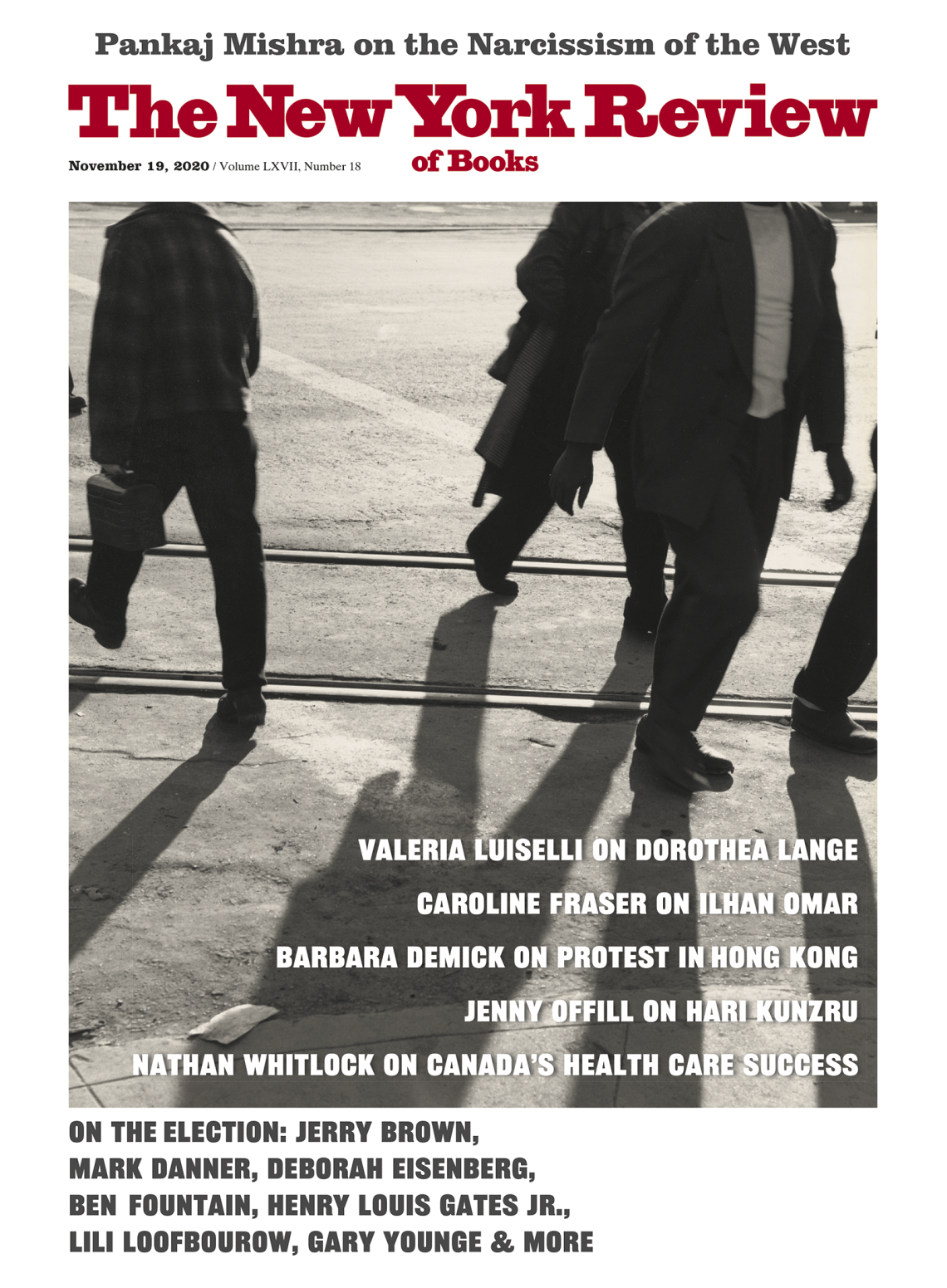In an essay about his landmark novel, Native Son, Richard Wright argued that while the racial identity of his protagonist was essential to the storyline, it was not exclusively tied to the book’s broader meaning. True, Bigger Thomas—that brooding, brutal, and brutalized ball of racial resentment—was African-American, but, explained Wright in “How Bigger Was Born,” there are plenty of people like him who weren’t:
He is the product of a dislocated society. He is a dispossessed and disinherited man; he is all of this, and he lives amid the greatest possible plenty on earth and he is looking and feeling for a way out. Whether he’ll follow some gaudy, hysterical leader who’ll promise rashly to fill the void in him, or whether he’ll come to an understanding with the millions of his fellow workers…depends upon the future drift of events in America.
The “drift of events in America” over the last eighty years has led us to this place. A “gaudy, hysterical leader [promising] rashly to fill the void”—the precariousness of this particular moment is clear. It extends beyond the familiar electoral frontiers of economic inequality, foreign policy, reproductive rights, and the standard fissures of race and xenophobia to the fundamental future for American democracy itself. At other times, this might be understood as catastrophizing; this time, the catastrophe is actually upon us. The violations of what once passed for democratic norms—encouraging political violence, disabling the electoral infrastructure, refusing to respect the result—are not a threat but a reality.
“I sometimes fear/that people think that fascism arrives in fancy dress,” wrote the British poet and children’s author Michael Rosen:
Fascism arrives as your friend.
It will restore your honour,
make you feel proud…
remind you of how great you once were.
The most immediate obstacle to the further degradation of America’s political culture is electoral. Given the slender nature of Donald Trump’s victory in 2016, a Democratic victory in November by a single vote in all the swing states would do. But to see Trump thoroughly trounced and humiliated at the polls and the Republicans crushed in Congress would provide more than schadenfreude. A defeat on that scale would put the result beyond question and might persuade the mainstream right not to collude in such a reckless, inflammatory, and destructive escapade for a generation.
But even that would not suffice. Voting Trump out would be a precondition for democratic stability, though hardly a guarantor of it. Trump did not create the void to which Wright referred; he is the product of it. He did not invent racism, bigotry, oligarchy, xenophobia, or misogyny—he has simply found a way to employ and exploit them to greater political and electoral effect than most. Given the money, disenfranchisement, and gerrymandering in American politics, democracy was already in peril.
While Joe Biden is the only viable electoral answer to Trump, his victory would provide neither ideological relief nor even, necessarily, an effective political response. Indeed, it is his brand of economics, foreign policy, and racial politics that contributed significantly to the situation we now find ourselves in. No enduring remedy to the last four years is plausible if it fails to address America’s racist inequities, economic disparities, environmental calamity, and pervasive misogyny.
Precious little in Biden’s history suggests he has either the ability or the desire to meet those challenges. The popular disaffection that would come with four more years of wage stagnation—compounded by the possibility of a Covid-induced depression—political triangulation, and lethal state racism will embolden those who prey on alienation and cynicism. But there is reason to believe that a Biden administration would be, at the very least, more receptive to progressive demands from below.
The void of which Wright wrote can only be filled with hope and ideas for the future, not simply a change of personnel and a pledge to return to the “normal” that in fact created it. As he went on to explain:
Granting the emotional state, the tensity, the fear, the hate, the impatience, the sense of exclusion, the ache for violent action, the emotional and cultural hunger, Bigger Thomas, conditioned as his organism is, will not become an ardent, or even a lukewarm, supporter of the status quo.


